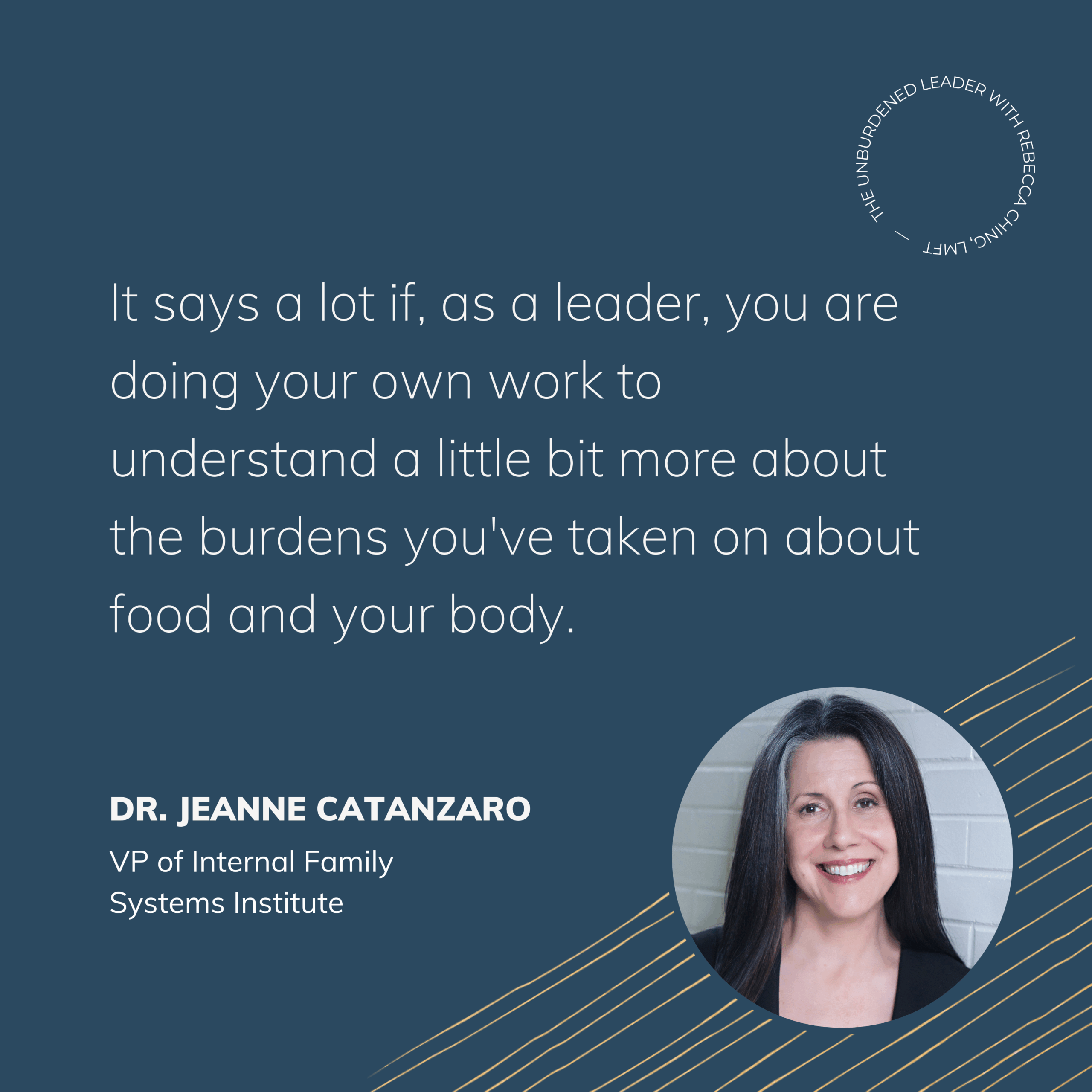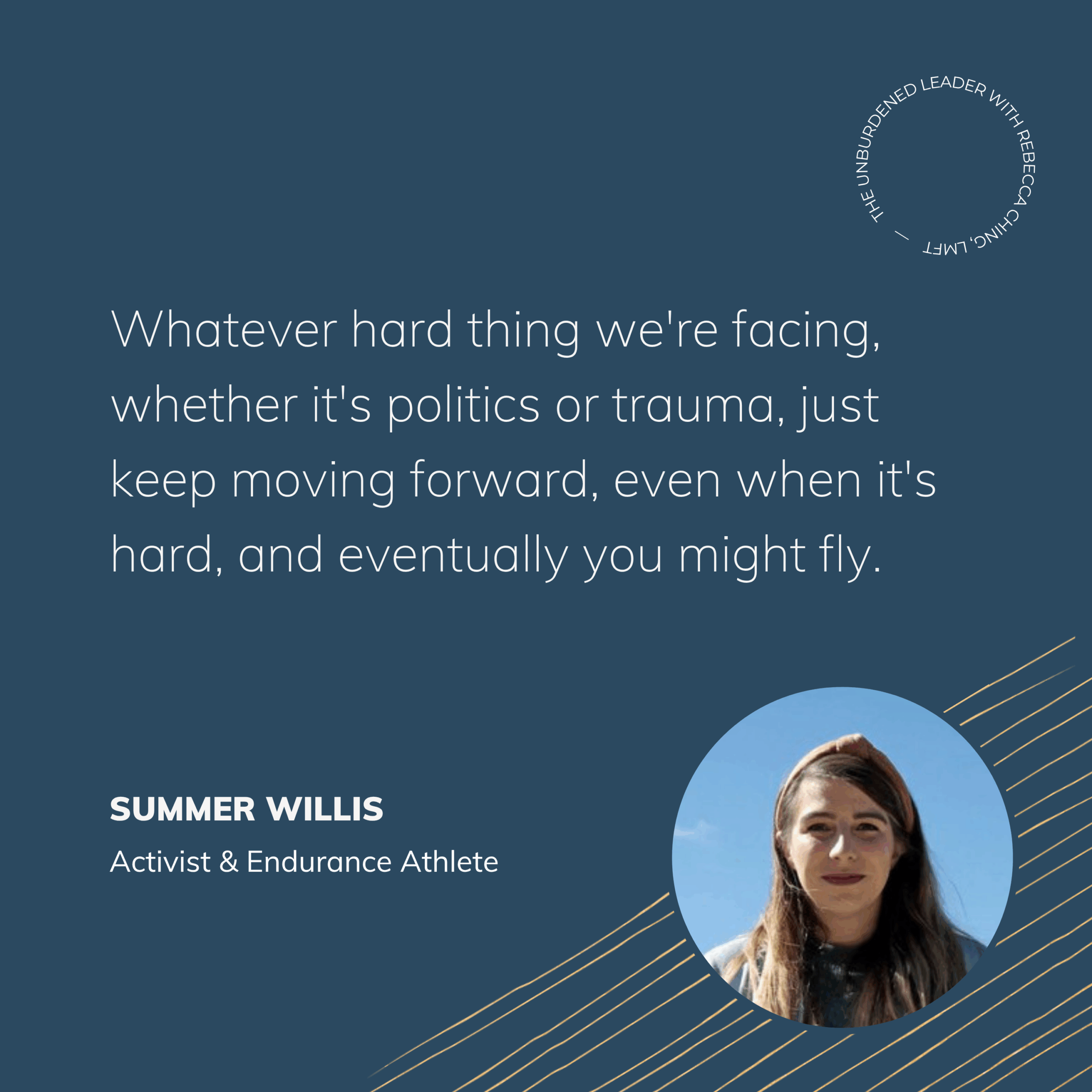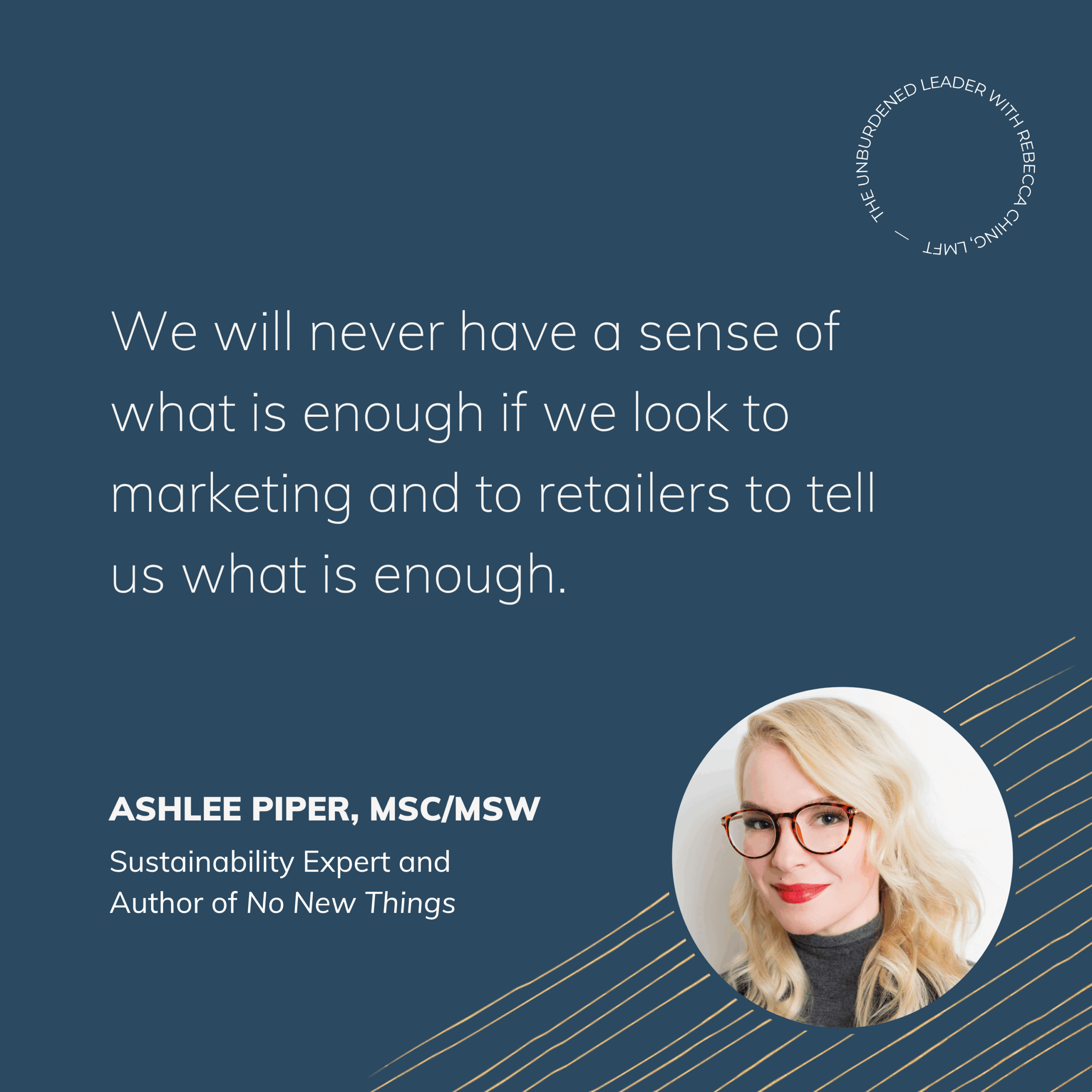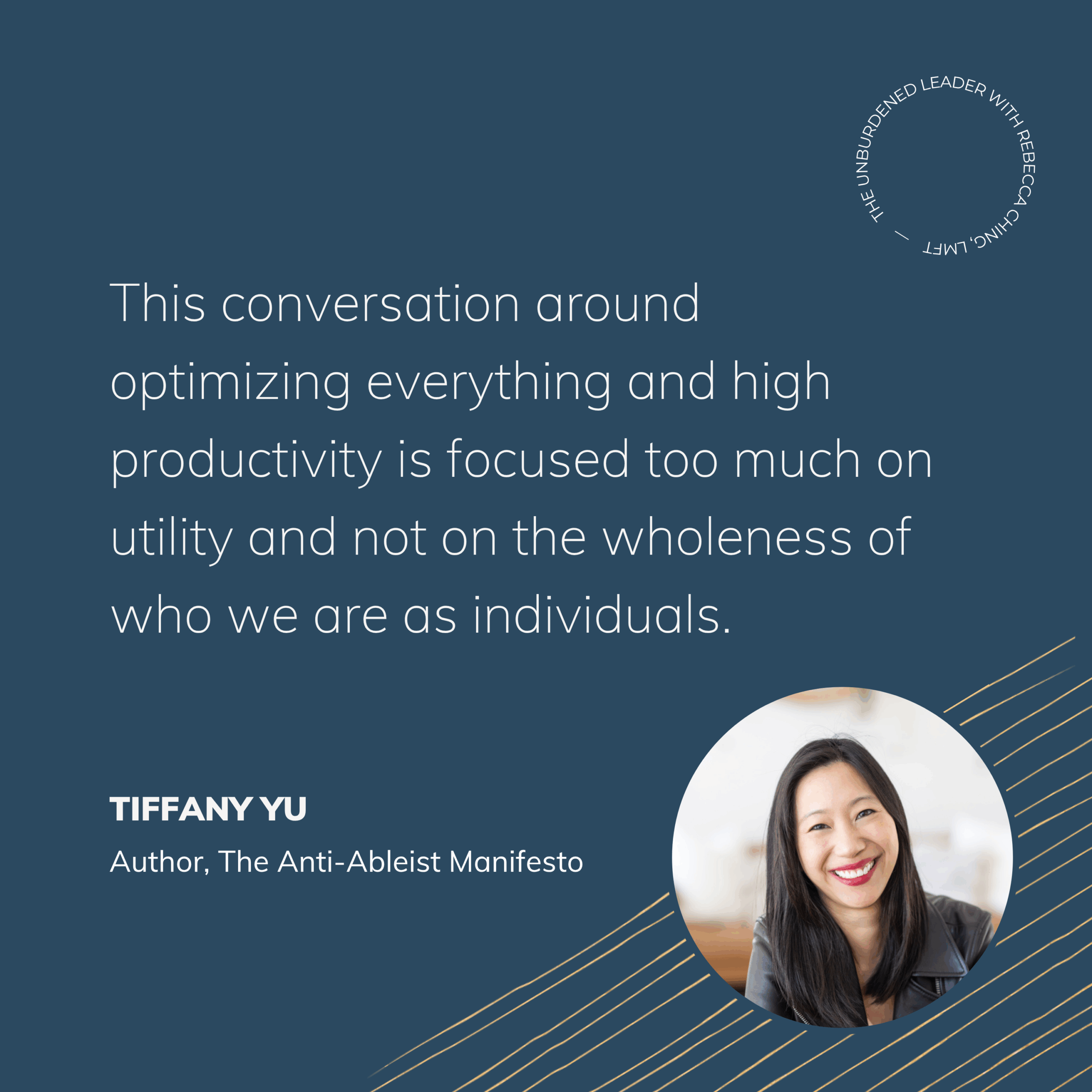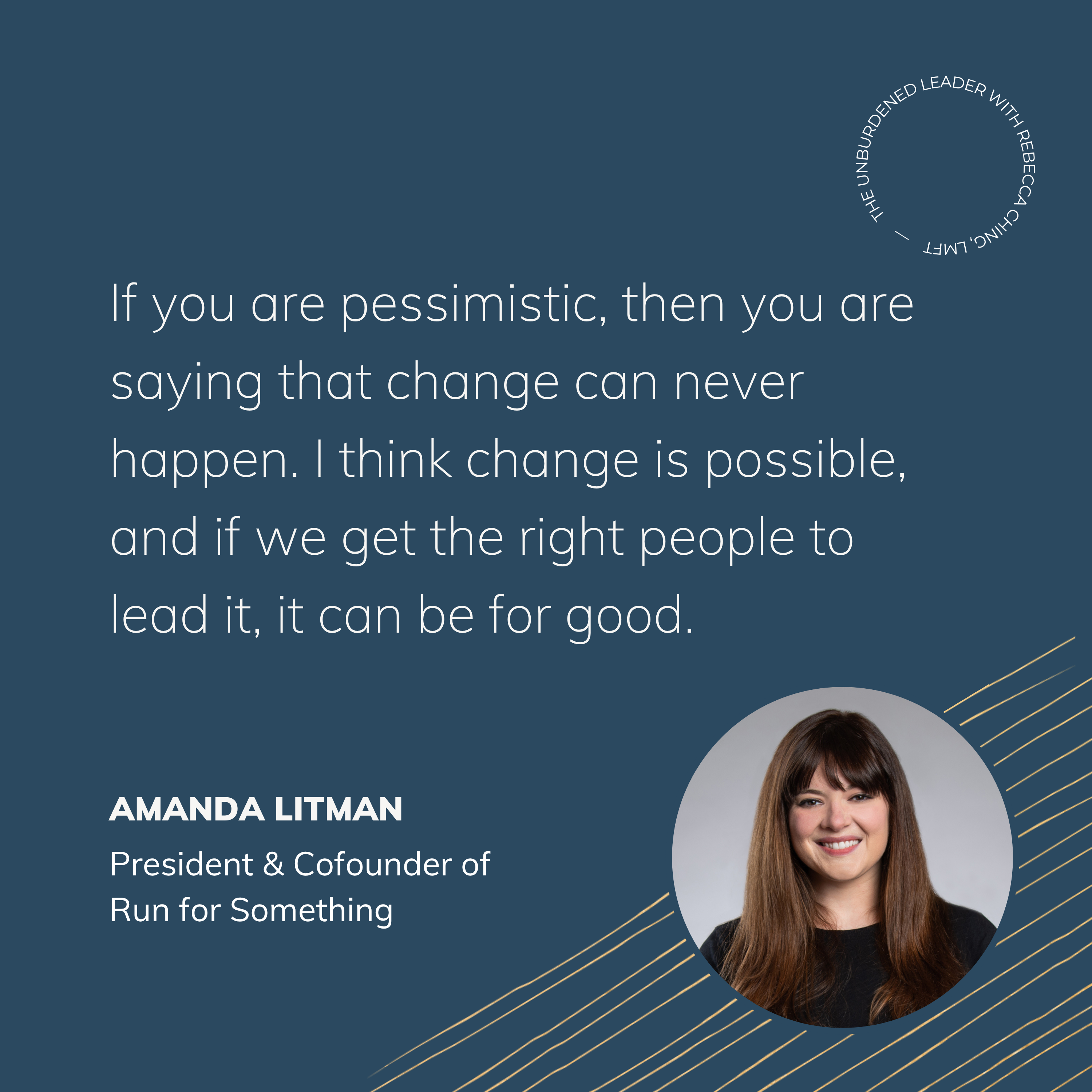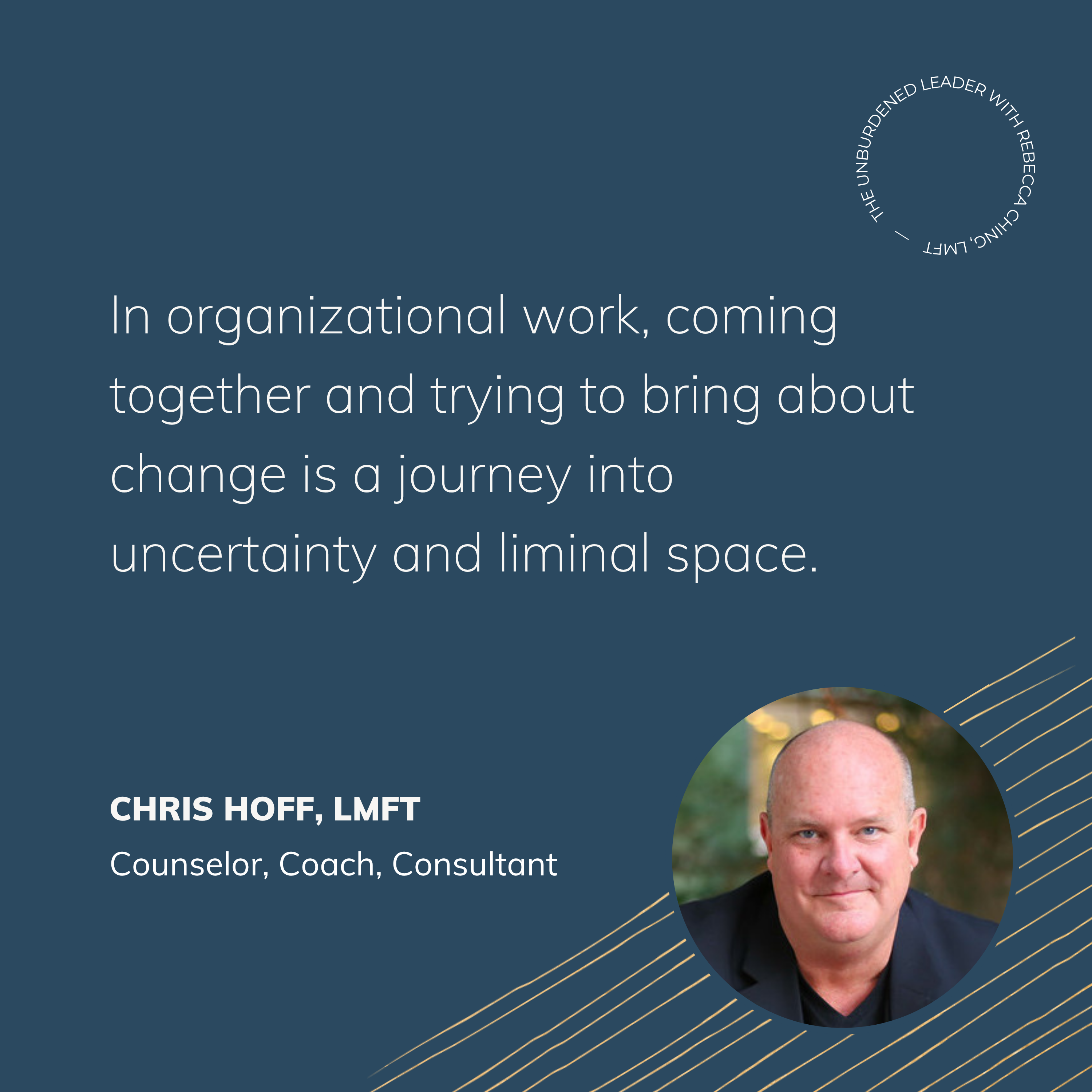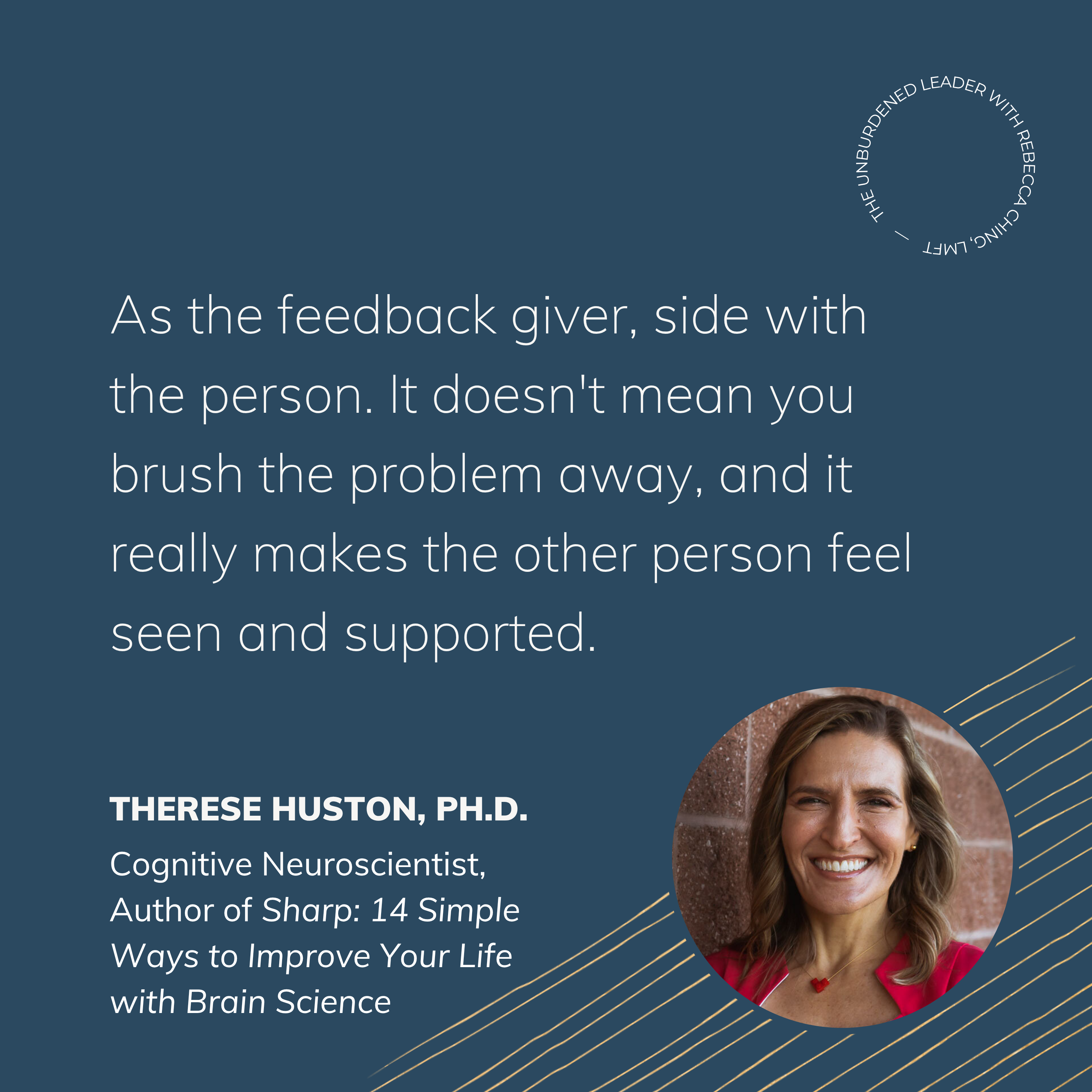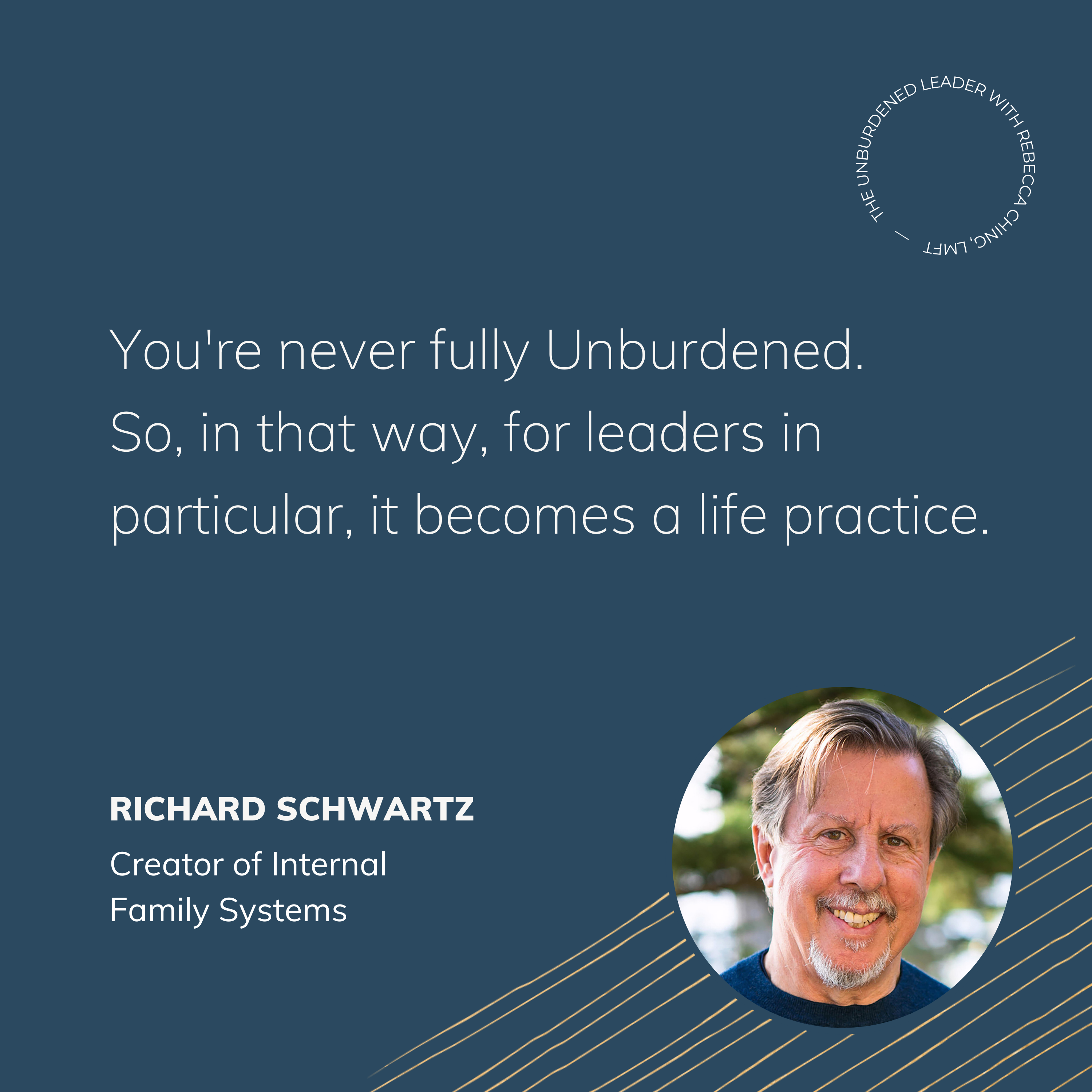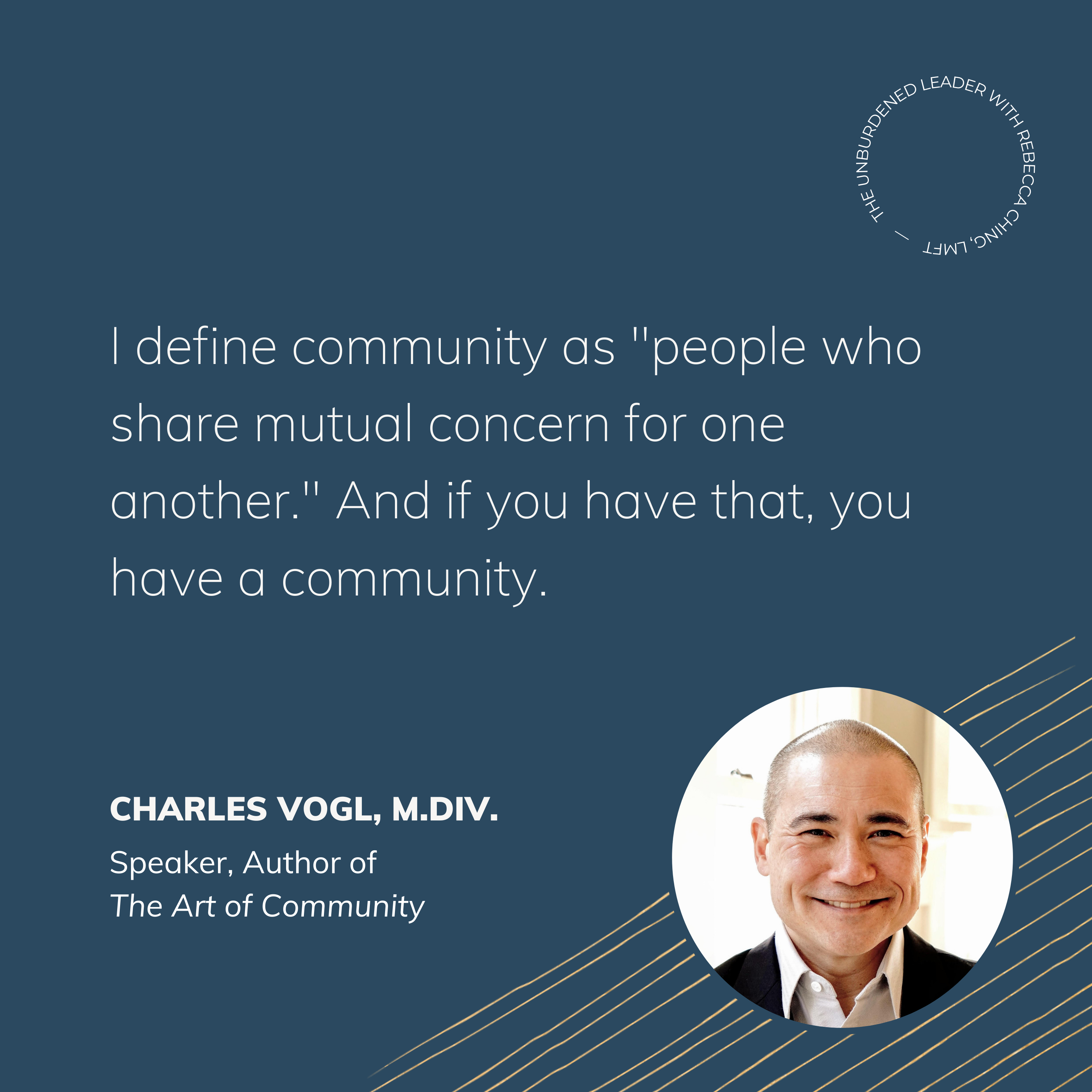Welcome, I'm so glad you're here.
On The Unburdened Leader Podcast, I go deep with leaders whose burdens have inspired their life’s work. My goal is to learn how they’ve addressed these burdens, how they rise from them, and become better and more impactful leaders of themselves and others. Don’t miss out on my latest podcast episodes—listen now on your favorite platform: episodes.fm
listen on
The Unburdened Leader PODCAST
WITH REBECCA CHING, LMFT
Top 11 Episodes
Everybody’s carrying a burden that’s weighing them down. If you dare to care, it is inevitable you will end up carrying the burdens from grief, betrayal, and rejection. And these burdens are often unseen. These invisible struggles fuel loneliness, shame, and despair. Eventually, the unaddressed burdens we carry start to impact our ability to live […]
We watch leaders crash & burn all the time. We watch with morbid fascination as leaders fall out of grace because their unaddressed pain led them on an unsustainable path of poor choices–even dangerous and deadly choices–to avoid feeling the vulnerability of rejection. Those times when you experienced the pain of rejection leave their mark […]
Caring about those you lead means caring about the harm you may unknowingly be doing. Many of us who fit western standards of beauty and live in conventionally abled bodies don’t understand how our choices can cause pain. We’ve internalized ableism and fat-phobia to the point where we can’t even grasp how our words & […]
The quickest way to crash and burn your business and life is to place your worthiness and safety with the opinions of others. This may sound like a captain-obvious statement but the pull to care what others think is something fierce. And it is sneaky. The competitive drive is no stranger to many of you. […]
Community over competition is indeed a well-worn hashtag. The cynical can dismiss it. Those beat up by year after year of injustice understandably call BS. But in practice, leading with the lens of community over competition is subversive and culture-shifting. Community over competition requires deep life-long work to unburden the load we carry of scarcity […]
My body was telling me to take a step back and reevaluate. Five years ago I had pneumonia and I couldn’t really do anything other than prop myself up on the couch and breathe… …breathe and think about how I ended up in this mess I’d run myself into the ground. My schedule was full-to-overflowing. […]
meet the founder
I’m Rebecca Ching, LMFT.
I help change-making leaders get to the root of recurring struggles and get confidently back on track with your values, your vision, and your bottom line.
I combine psychotherapeutic principles, future-forward coaching, and healthy business practices to meet the unique needs and challenges of highly-committed leaders in a high-stakes world.
This is unburdened leadership
keep me in your inbox
Each week, I send out Unburdened Leadership Insights to help you:
free insights ↓
- Release the stifling expectations that keep strong leaders stuck
- Make healthy space for emotions while maintaining momentum
- Develop skills to lead without losing yourself or your values
